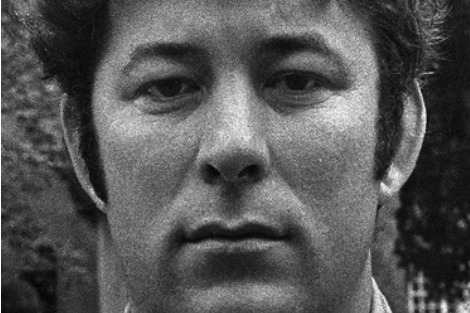
Requiem for a poet
('... who has made the room — and kept going')
When you account, as you must, the courtship with the soil,
It is a grand reckoning, croppies and trouble-makers, friends in toil,
Old fermentations, and even family in the chain of ancient moil.
We know you read the turf better, spadefall concision,
Oh! Seamus, Seamus, you could cut with such love and precision,
Make songs rise from the deep, give voices to buried vision.
Noli or nolle timere, who cares?, for it doesn't matter at all,
With the earthed and unearthed, you kept us all in thrall,
Perfecting the geology of the spirit, earth knows how to speak in Donegal.
You have been our host, high-held, so much giving, gravelly and gritty,
Inviting us in — and how exhausting! — with the richness and ripeness of festivity,
Glory be to the peat and to the bog, and to the light on The Strand in the city.
And so now the ground opens for yet another honoured guest,
You have made room and rhyme enough for us all to be blessed.
Peter Gebhardt
Getting it Right
In gratitude to Seamus Heaney
i.
In our baronies of childhood
we lived twenty miles apart,
perhaps half an hour
for the gales from the West
that shook your father's trees
to rock our copper-beech,
or no time at all
for my fingers following
our Six Mile Water
to cross Lough Neagh's
petrifying deeps
and meet your Moyola
in the River Bann
famous with eels.
ii.
But we were not to be friends,
not if you'd been our neighbour.
A James? Perhaps, but not Seamus.
I was brought up to become
a Scottish Protestant boy
in exile from the country
that was my father's homeland.
You grew up to be at home
in your history and tongue;
my father banned your accent,
set me to Elocution, as if
your speech was my speech-defect.
Our history lay elsewhere,
even as we were living it,
iii.
for I too was growing to know
your horse-powered harvests, the crex-crex
of corncrakes among the stooks,
the stench of retting flax
over crannog and souterrain,
and The Twelfth of July's bullying
yammer of Lambeg drums.
Years later then, transplanted
to this far side of the world,
when first I found your words
I knew my childhood's landscape
in your people, your place-names,
and learned for the first time
how we'd failed to make it our home.
iv.
One image: when I was seven,
we watched from an upstairs window
the flax mill on fire in the village
my father with authority
pronounced to rhyme with 'dough':
Doagh. But your voice tells me
I need remember only
the guttural that closes loch —
one sound we Scots always knew
'strangers found difficult to manage'.
While this fire burns in my mind
I'll speak it with your voice:
Doagh. Getting this right at least.
Never friends, I'll not be your stranger.
Alan Roddick
Vale Seamus Heaney
Shaken by a distant quake
whose tremors travel underground
to rattle cups and saucers on the kitchen bench:
a colossus in his land,
a granite-featured sage, has gone –
a farmer's son from County Derry,
poet for his age, our own.
Season after season he would work
his earth, the deep, rich loam,
trusting in the sureness of his hands.
Jena Woodhouse
It Matters How We Go
for Barry Lopez
How important it must be
to someone
that I am alive, and walking,
and that I have written
these poems.
This morning the sun stood
right at the top of the road
and waited for me
–Ted Kooser 'How Important it Must Be'
A siren goes by me now;
The day is over-ripe on the vine, and the wind is working hard
To pull the whole thing to the ground. The dog
Sleeps beside me — inside, out of it —
And my mind runs back to yesterday, when things stood still, and to the lighted woods.
It matters how we go and where, and how we lift our feet;
Each life seems to count among
The trees.
For acacia, and bracken fern, and ribbon gums were all over Hammock Hill again
In sun like a backburn barely in hand, and they were suffering
Grass parrots to come like children among them,
When I walked there after lunch, trailing my impossible life behind me. I carried on
A shy conversation with you, Seamus Heaney, so soon
Gone, and some I love who are living yet,
But not especially well. I worried; I drafted emails; I fashioned elegies and ripostes;
I wandered all over my head. Up and down the hill
All the while, the dog tried, as if it were
Not an ancient trick,
The patience of every rabbit inside the undergrowth until there was no more
Patience left anywhere to lose. A tree is sunlight stilled
And grown tall. A tree is water
Divined; rain born again and sluiced fast through vast dark fields, slung wide
And far in vatic flumes. A tree is spirit become matter,
Become spirit again. The canopy, a loose
And elevated encampment of song. Imagine your soul, then, as timber; your mind meta-
Morphosed to myrtle; your life a forest of thesis and chant. Walking here,
Among elders, makes a garden of me; I am curated,
Tended and conserved; walking
Is a prayer the trees seem disposed to answer sometimes: putting in the downtime
One never takes time to take; dancing out in perfect stillness the steps one falls out of,
Otherwise. And minding very quietly how one goes.
Mark Tredinnick
 Peter Gebhardt is a retired school principal and judge. His most recent book is Black and White Onyx: New and Selected Poems 1988–2011.
Peter Gebhardt is a retired school principal and judge. His most recent book is Black and White Onyx: New and Selected Poems 1988–2011.
 Alan Roddick is a retired public health dentist living in Dunedin, NZ.
Alan Roddick is a retired public health dentist living in Dunedin, NZ.
 Jena Woodhouse's publications include two poetry collections, a novel, Farming Ghosts, and short story collection, Dreams of Flight.
Jena Woodhouse's publications include two poetry collections, a novel, Farming Ghosts, and short story collection, Dreams of Flight.
 Mark Tredinnick is a winner of the Montreal Poetry Prize, and the author of The Blue Plateau, Fire Diary, and nine other acclaimed works of poetry and prose. He lives in the NSW Southern Highlands.
Mark Tredinnick is a winner of the Montreal Poetry Prize, and the author of The Blue Plateau, Fire Diary, and nine other acclaimed works of poetry and prose. He lives in the NSW Southern Highlands.